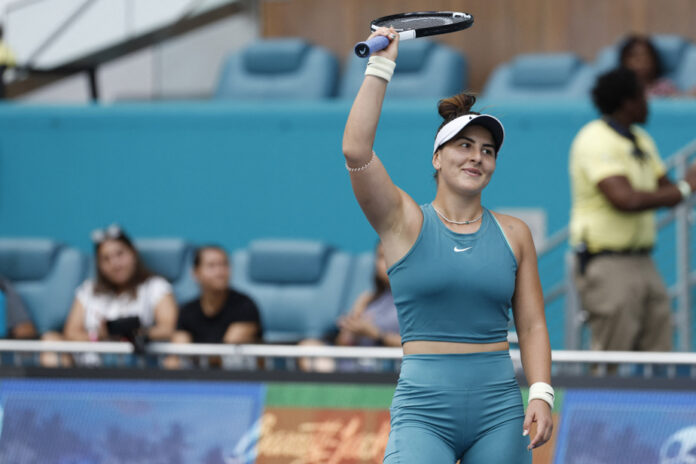For the second year in a row, Tennis Canada will be offering its “Mental Break” initiative, La Presse has learned. This time, three ambassadors will be on a mission to fuel the conversation about mental health issues on and off the court.
“Last year was Tennis Canada’s first step into the conversation around mental health to try to break down the taboos around this issue. We hope to help young people talk about mental health,” says Katie Spellman, director of communications at Tennis Canada.
The second phase of this program will be launched this Thursday morning.
Among the initiatives is the “Positive Tennis Experience Promise”. A document whose “purpose is to invite everyone involved in tennis, whether fan, player or referee, to commit to providing a safe and positive environment for all players in Canada, by signing the pledge” , adds Spellman.
Other activities will also be organized during the presentation of the National Bank Open in the summer. In particular with Bianca Andreescu, involved again this year in the initiative. She was the very first face of the program last year.
“Bianca was a perfect ambassador for the project, because she was very open about her own mental health issues, with the break she took and what she did to help herself. improve during this period. She was really involved in the project,” says the director of communications.
ATP Tour player Alexis Galarneau and wheelchair player Rob Shaw are the other two campaign ambassadors.
“It involves everything that I want to promote in terms of mental health. It’s a great way to start a conversation. People are starting to talk about it more and more. I talk about it more openly myself,” recalls Andreescu on the other end of the phone from the Old Continent.
Galarneau is also aware of the need to fuel the discussion: “I am happy to have this opportunity to use my platform to raise awareness among tennis fans, especially young people. To show them that at all levels there will be anxiety and performance stress, but also that there are ways to better control these factors. »
For his part, Shaw is happy to have been involved in the project. Mainly to give wheelchair gamers a voice. “I bring some diversity to the group of ambassadors. We have a strong community of wheelchair players in Canada and we are often left behind. So having a wheelchair player adds to the values of diversity and inclusion. »
Growing up, the majority of young tennis players got their ears knocked out with the same old refrain: tennis is 80% mental and 20% physical.
However, over time, the three ambassadors noticed with astonishment how true this was. How the mental aspect of this discipline took a predominant place in their success, their failures and their preparation.
In a pinch, one could even argue that we too often underestimate just how mentally demanding tennis can be.
“I feel like the conversation is getting more and more productive,” said Andreescu, the 2019 U.S. Open champion. “I think it’s all about the mind. You create your reality. All tools are good and they can change your life completely. »
Shaw especially thinks about the difficulty of being alone with yourself, most of the time, and how this initiative could save some young people.
“Whether you’re a youngster just getting started or a competitive level player, it’s a very individual sport. You are alone to play and you are often alone in front of yourself. It’s easy to isolate yourself. Especially in a big country like Canada: it’s easier to fall for the cracks of the system. »
For his part, Galarneau highlights the fluctuations in player morale, because inconstancy is the worst enemy of all tennis players, on and off the court.
“Sometimes everything is fine, the stress level is not too high, it’s a lot of fun to play. However, when things aren’t going so well, you question yourself, and it’s times like these that you understand even more the importance of taking care of yourself mentally. »
This movement is part of the “long-term strategy to support mental health initiatives with experts, academics, a committee and athletes,” says Spellman. According to her, all of this is part of the idea of opening up dialogue and breaking taboos, for the future of young tennis players, from coast to coast.

